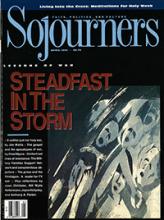From then on Jesus started to indicate to his disciples that he must go to Jerusalem and suffer greatly there at the hands of the elders, the chief priests, and the scribes, and to be put to death ... -- Matthew 16:21
Every detail of Holy Week points to a person who knew exactly what he was doing and why. Indeed, months before, Jesus had sent word to the authorities, who he was told were out to kill him, "Tell that fox [King Herod] 'Today and tomorrow I cast out devils and perform cures, and on the third day my purpose is accomplished'" (Luke 13:32). He told his disciples on several occasions just what his end would be and allowed no opposition to that purpose.
It is clear then that Jesus freely accepted his death, both in terms of its timing and its manner. It is also clear that he had other options right up until the moment of the crucifixion. Before allowing himself to be taken in Gethsemane, for example, he could have made his escape and joined the Zealot party, which favored armed struggle against the Roman occupiers.
Surely Jesus could just as well have struck a deal with the Roman authorities before he was killed. Pilate was intrigued at Jesus' serenity during that Friday's interrogation. There is ample reason to believe that Pilate did not really want to put Jesus to death. Had Jesus opted for either the revolutionary alternative or an accommodation to Roman authority, he would have lived out the rest of his life and never been heard from again.
Read the Full Article

